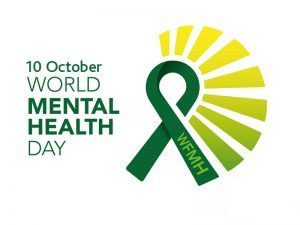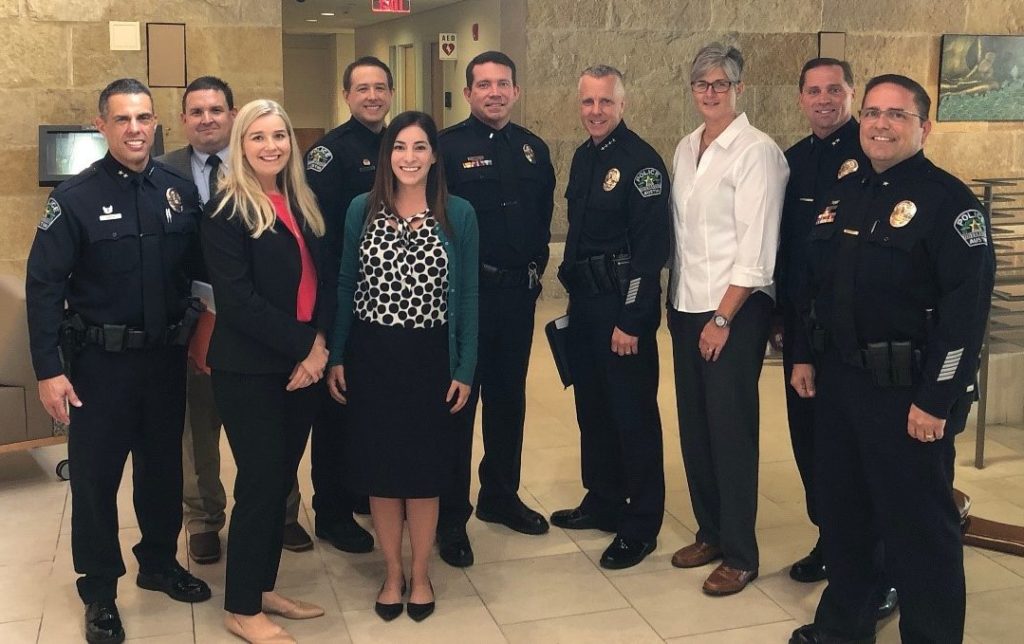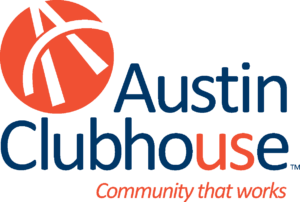TRANSPARENCIES
a monthly newsletter from Integral Care
a monthly newsletter from Integral Care

 Today is World Mental Health Day, a time to celebrate how far we have come and draw attention to how much farther communities need to go for better mental health treatment and policies across the globe. In many countries, myths and mistreatment still surround mental illness. There is good news though as countries are stepping up and taking action.
Today is World Mental Health Day, a time to celebrate how far we have come and draw attention to how much farther communities need to go for better mental health treatment and policies across the globe. In many countries, myths and mistreatment still surround mental illness. There is good news though as countries are stepping up and taking action.
What kind of strides are we making in the U.S.? Congress is taking action by introducing legislation — The National Suicide Hotline Designation Act. If passed, the act would create a 3-digit number (988) for mental health crisis calls. As U.S. Representatives Chris Stewart and Seth Moulton point out in their Washington Post oped, “Right now…help is more than just a three-digit phone call away….For example, people can call the National Suicide Prevention Lifeline, but callers must search for and then dial 1-800-273-8255. That is one step too many in a crisis.”
The National Alliance for Mental Illness (NAMI) is literally making physical strides – with NAMIWalks. Over 100 walks just occurred around the country, raising awareness and funds for mental health. Here in Austin, a record 2,140 registrants signed up and raised nearly $350,000 to support NAMI Central Texas programs. Integral Care was proud to lead the walk with a team of 150 walkers.
It is also important that local governments take action to build stronger systems of support for our communities. Locally, Austin and Travis County have seen several recent wins for mental health. Austin City Council passed a budget last month for FY2020, expanding access to mental health care. The budget provides
I’d like to express my gratitude to Austin City Council for allocating essential funding to continue the vital work of EMCOT and strengthen how our community responds to people in crisis. When people across Austin and Travis County have access to the right care at the right time, our whole community is stronger. Our world is stronger.

David Evans
Chief Executive Officer
EXPANDED MOBILE CRISIS OUTREACH TEAM

Integral Care staff with EMCOT partners: Asst. Chief Joseph Chacon, Sgt. Michael King, Integral Care Crisis Services and Justice Initiatives Practice Administrator Laura Slocum, Senior CIT Officer James Turner, Integral Care EMCOT Practice Manager Marisa Aguilar, Lt. Brian Jones, Chief Brian Manley, Integral Care Chief Operations Officer Dawn Handley, Asst. Chief Justin Newsom and Comdr. Donald Baker
Thanks to support from Austin City Council, our Expanded Mobile Crisis Outreach Team (EMCOT) is growing and increasing access to mental health care services for residents of our community. EMCOT helps people experiencing a mental health crisis by providing support anywhere someone needs help. Since its inception in 2013, they have served over 7,200 individuals. With increased funding, EMCOT will get people connected to the right care faster.

EMCOT staff in the field working with APD’s Crisis Intervention staff
Austin-Travis County Emergency Medical Services (EMS), Austin Police Department (APD), and Travis County Sheriff’s Office (TCSO), as well as other law enforcement agencies, can request 911 dispatch EMCOT to co-respond in situations involving mental health issues. The goal is that clinicians arrive within 30 minutes. Starting in December, EMCOT team members will be stationed at the 911 Call Center, where mental health calls will be transferred by 911 call takers to EMCOT. This means quicker assessment and triage of a person’s situation and the level of care they need. Under the city’s new budget, EMCOT will add 4 full-time clinicians. This means we will have a clinician located at the call center every day, 8am-12am.
EMCOT is key to preventing the overuse of emergency departments, involuntary commitments for psychiatric hospitalizations and law enforcement involvement in our community.
In FY18, EMCOT diverted
– 99.8% of individuals served from arrest,
– 87.1% of individuals served from involuntary placement in a psychiatric hospital and
– 78.7% of individuals served from emergency department admission.
EMCOT helps ensure that first responders can return to what they do best – responding to medical emergencies and public safety issues.
AUSTIN CLUBHOUSE

An international best-practice model, Austin Clubhouse offers people with mental illness a place to work, build friendships and community. The Clubhouse operates in the heart of Austin, tucked behind a church on 45th Street. It’s one of over 300 Clubhouses in more than 30 countries. The majority of Austin Clubhouse members are also Integral Care clients – past or present.
The Clubhouse is a judgement-free, restorative environment where people with a mental health diagnosis obtain the support of others in recovery from mental illness. They offer a variety of programs to help members achieve their full potential:
A unique aspect of the Clubhouse model is the fact that members participate in a “work-ordered day”, meaning everyone has a role – from cooking in the kitchen, to tending the garden or other tasks that contribute to Clubhouse operations.
“Members’ recovery is really in the relationships and skills built in side-by-side engagement. This reduces isolation and empowers them to try new things. We impact lives in meaningful ways and achieve positive outcomes with a cost-effective model.” – Amber Goggia, Interim Executive Director
The Clubhouse is open Monday through Friday and every holiday. They work with about 30 individuals daily, serving approximately 150 annually. They see their biggest turnout on holidays. More than anything, the Clubhouse is a community – one where people build on their strengths and can feel a part of something bigger than themselves.
September 2019: Making Strides for World Mental Health
August 2019: Working Together for Child & Youth Mental Health
July 2019: Legislative Wrap-Up – Some Bipartisan Wins for Healthcare
June 2019: Strengthening Access for Veterans and the Entire Military Family
May 2019: Women and Mental Health
April 2019: Legislative Session Status Report
March 2019: Making Opportunities for Recovery More Accessible
February 2019: Recovery is Possible
January 2019: Stronger Outcomes Through Collaboration
December 2018: Looking ahead to the 86th Texas Legislature
November 2018: How Tech is Changing the Face of Mental Health
October 2018: A Few Questions Could Help Save a Life
September 2018: Anyone Can Save a Life
August 2018: A Milestone Moment
July 2018: Equity in Mental Health Care for All
June 2018: Expanding Services for Veterans
May 2018: Your Mental Health Toolkit
April 2018: Time of Terror Calls for Increased Emotional Support
March 2018: Stopping the cycle of incarceration for individuals with mental illness
February 2018: Equity in mental healthcare for everyone
January 2018 : Improving Mental Health Through Partnership & Collaboration
December 2017: Strength Through Community
November 2017 : Healthy Lifestyles Improve Well-Being
October 2017 : National Child Health Day
September 2017 : Strengthening Families and Communities